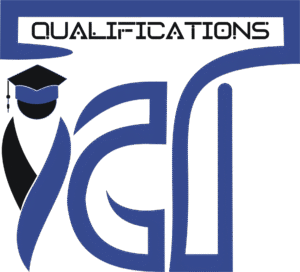ProQual Level 4 Award in Advanced Healthcare and Social Care Support Skills
Elevate Your Skills, Advance Your Career


Course Level
Level 4
Course Type
Ofqual Regulated
Awarding Body
ProQual
Duration
4 to 6 Months
Study Mood
Online
Assessment
Assignments Based
Course Overview
What is this course
The ProQual Level 4 Award in Advanced Healthcare and Social Care Support Skills is a practical and career-focused qualification designed for professionals who want to step into senior roles within the health and social care sector. This Level 4 Advanced Healthcare and Social Care Support Skills qualification helps you strengthen your confidence, build advanced knowledge, and develop the practical abilities needed to work effectively in complex care environments.
Through this course, learners gain a deeper understanding of person-centred care, communication strategies, risk assessment, leadership skills, and safe working practices. The ProQual Level 4 health and social care support skills course also prepares you to handle challenging situations professionally, support service users with diverse needs, and guide junior staff with clarity and compassion.
Whether you are aiming to become a senior healthcare support worker, care supervisor, or looking to advance your career in hospitals, residential facilities, or community care settings, this qualification provides a solid pathway. The ProQual Advanced Healthcare and Social Care Support Skills Level 4 award is recognised by employers and helps you stand out as a capable, responsible, and skilled care professional.
Course Content
Detailed Curriculum Structure
To achieve the ProQual Level 4 Award in Advanced Healthcare and Social Care Support Skills; Candidates must achieve 6 credits from any combination of units.
Who Should Attend
Target Audience and Participants
This course is ideal for individuals seeking to advance their careers in the health and social care sector. It is perfect for:
- Healthcare support workers aiming to step into senior or leadership roles
- Social care professionals looking to enhance their advanced care skills
- Care supervisors, team leaders, or aspiring managers in healthcare and social care settings
- Professionals seeking to strengthen their person-centred care, communication, and risk assessment abilities
- Individuals wanting a recognised Level 4 qualification to improve career prospects in hospitals, residential care, community care, or rehabilitation centres
- Anyone passionate about delivering high-quality, compassionate, and professional care to diverse service users
By enrolling in this ProQual Advanced Healthcare and Social Care Support Skills Level 4 course, learners gain practical expertise, industry-recognised skills, and the confidence needed to excel in senior healthcare and social care roles
Career & Learning Benefits
Skills, Knowledge & Opportunities You Will Earn
Enrolling in the ProQual Level 4 Award in Advanced Healthcare and Social Care Support Skills opens doors to numerous career opportunities and professional growth in the health and social care sector. Key benefits include:
- Career Advancement: Gain the skills and knowledge required for senior healthcare support roles, care supervision, and leadership positions.
- Professional Recognition: Achieve a nationally and internationally recognised Level 4 qualification that boosts credibility with employers.
- Enhanced Skills: Master person-centred care, communication, safeguarding, risk assessment, and team management to excel in complex care environments.
- Higher Employability: Stand out in competitive healthcare and social care job markets with a qualification that demonstrates advanced competence.
- Diverse Work Opportunities: Open pathways in hospitals, residential care homes, community care settings, rehabilitation centres, and private healthcare organisations.
- Confidence and Competence: Strengthen your decision-making, problem-solving, and leadership skills to provide safe, effective, and compassionate care.
- Future Growth: Prepare for higher-level qualifications or specialised healthcare and social care roles, ensuring long-term career progression.
This ProQual Advanced Healthcare and Social Care Support Skills Level 4 course equips you with practical experience and professional knowledge to thrive in senior roles and make a real impact in the health and social care sector.
Need More Information?
Frequently Asked Questions Explained
Enrollment Criteria
Minimum Eligibility Criteria for Enrollment
Lock In Your Spot
Get in Touch
+44 2035 764371
+44 7441 396751
info@ictqual.co.uk
www.inspirecollege.co.uk
Follow Us
Qualification Process
Qualification Process for the ProQual Level 4 Award in Advanced Healthcare and Social Care Support Skills
- Self-Assessment:
Begin by evaluating your eligibility to ensure you meet the qualification requirements, including work experience, knowledge, and language proficiency. - Registration:
Complete your registration by submitting the required documents, including a scanned copy of a valid ID, and paying the registration fee. - Induction:
An assessor will conduct an induction to confirm your eligibility for the course and explain the evidence requirements. If you do not meet the criteria, your registration will be canceled, and the fee will be refunded. - Assignmnets & Evidence Submission:
Provide all assignmnets and the necessary evidence based on the assessment criteria outlined in the course. If you are unsure of the required evidence, consult with the assessor for guidance on the type and nature of evidence needed. - Feedback and Revision:
The assessor will review your submitted evidence and provide feedback. Evidence that meets the criteria will be marked as “Criteria Met,” while any gaps will be identified. You will be asked to revise and resubmit if needed. - Competence Evidence:
Submit final evidence demonstrating that all learning outcomes have been met. This evidence will be marked as “Criteria Met” by the assessor once it is satisfactory. - Internal Quality Assurance (IQA):
The Internal Quality Assurance Verifier (IQA) will review your evidence to ensure consistency, quality, and compliance with standards. - External Verification:
The IQA will submit your portfolio to ProQual’s External Quality Assurance Verifiers (EQA) for final confirmation. The EQA may contact you directly to verify the authenticity of your evidence. - Certification:
Upon successful completion of all checks, ProQual will issue your official certificate, confirming that you have attained the ProQual Level 3 Diploma in Healthcare and Social Care Support Skills .









